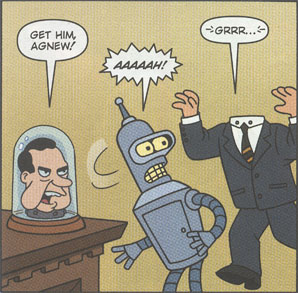http://www.youtube.com/watch?v=D3v_ogRaTf4
I know it's going to be hard for everyone to resist commenting on the brilliant ""I collect spores, molds and fungus." pick-up line but I'd like to ask you to focus your comments on the "print is dead" concept.
After all these years what makes print(even electronic print) a worthwile medium for communicating with other humans now that audio/visual communication across distance and time have been made fairly accessible to a much wider spectrum of the population?













